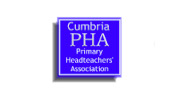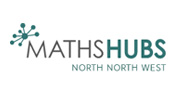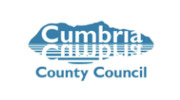Our “One Cumbria” Hub will change children’s lives through learning, giving teachers and leaders the highest quality training and development at every stage of their career. We will create an ubiquitous culture of scholarship that enables them to excel because their development is the most important form of school improvement.
West Lakes’ formidable Trust Board and governance model contains exceptional skills and experience. The trust will hold the hub and CEO accountable through the hub board, chaired by trustee-designate Vincent Ashworth (retired senior HMI), with inspection expertise in initial teacher education and a thorough knowledge of Cumbria. Professor Mick Waters (trustee) and Sir Tim Brighouse will also be members. Under the leadership of the CEO, partners will be required to accept the explicit and mutual accountability for a non-negotiable expectation of the highest quality of provision. We will not allow our reputations to suffer.
Our Trust’s Quality Assurance Measures (QAMs) programme and operational disciplines critically listen to, observe and evaluate our entire provision. They will also regulate partners with the same forensic triangulation we’ve always used to inform key decisions about the efficacy of practice, the development of the exceptional and the removal of anything that is not.
The sequencing of our all-through curriculum of teacher development is constructed on an evidence-informed understanding and a consideration of the learning process. Our content is grounded in providing cumulative knowledge and developing skill. For example, our approach builds subject knowledge pedagogy rather than localised strategies to maximise P8. We do not train to fill holes, we train to meet learning and development needs of individuals who are consequently ready to improve whatever a school context needs.
Launching our App “Live Work Grow” in November centres on well-being, lifestyle and career in a unique way that harmonises these elements by identifying the right location to live and work, complimenting their lifestyle choices and enabling people to grow. It begins with attracting trainees who’ve told us the routes into Cumbrian teaching are confusing. There is still work to do but this sophisticated marketing and engagement strategy will better articulate a rationalised suite of routes and carefully manage the competition vs collaboration tension for the benefit of the region. It will also seek new recruitment methods, particularly given STEM shortages, and our combined capacity and expertise will allow other subjects to be offered as needs are identified.
No matter which provider they sign up to, trainees will access the first stages of their common curriculum through placements in our carefully chosen, research-informed, designated lead schools. Some of what currently exists is not yet exceptional enough but our hub’s network can commission provision from relationships both in and out of Cumbria to fill gaps and fulfil our commitment to quality training.
For example, our partner Northern Star Academies Trust, lead for the Science Curriculum Hub, has a record of strong science teaching and outcomes in their schools. We have access to their North and West Yorkshire Science Learning Partnership. In the last contract period, they delivered over 730 days of CPD: reaching over 150 secondary and just under 200 primary schools. Their SCITT leadership and management is graded outstanding and has capacity to extend to working in Cumbria. Together we can facilitate peer support and challenge for ITT, joint training, conferences and placement exchanges between rural Cumbria and more populated areas to see outstanding practice that will develop their own.
Our QAMs seek and remove outdated or irrelevant theories because all staff must apply current powerful knowledge of how pupils learn. QAMs will ensure the highest standards of mentor training through a continual focus on education research to guarantee they are experts in their field and able to translate current evidence in to practice through well-developed experiences.
The teacher workload toolkit, mental health and supervision will remain core but our QAMs also provide practitioner-led identification of opportunities. For example, trainees have told us they’re most concerned about behaviour management so we start our programme with Tom Bennett’s materials and reinforce it regularly, particularly by mentors, so they get this golden thread throughout their training. Further, we will mitigate weaknesses in primary foundation subjects by delivering additional sessions and ensuring placements give trainees appropriate opportunities.
The “grow” strategy will build on the ITT foundation by a consistent on-line mechanism called our Cumbria “Record of Achievement and Growth” (CRAG) that diarises each learning and career stage, following us wherever we go. This will eradicate the gap between ITT and schools’ knowledge of an individual’s strengths and areas for development. We will supplement this with regular “health checks” reflecting our investment in them and ensuring better retention.
To ensure ECTs have the right experience we will require schools to regularly inform us what the ECTs are doing and how they’re translating the content of the ECF, through mentor support, to exemplify each standard in their craft. Being a pilot school with Teach First we will have a mature curriculum that takes account of individual areas of learning need but also how to learn it. This will be enriched by subject- and phase-specific communities of practitioners in wrap around professional and pastoral care. As the Appropriate Body we will externally moderate the CRAG and assessments as an integrated part of the ECF learning process.
The next stage of our all-through curriculum is the delivery of the reformed NPQs. Northern Star Academies Trust who are the lead school for Carnegie Leaders in Learning NPQ delivery is one option among other existing providers. They have provided design, assessment, and delivery at all levels of the qualifications. Carnegie’s programmes have recruited over 400 participants across all NPQs with 100% accuracy in assessment and moderation with no appeals or complaints. If they become a National Provider, we may work with them for the reformed NPQs using their existing cluster model to include strong practitioners and tailoring provision to the needs of the region.
Our intention is that each school or cluster of small schools will have a lead person with the NPQ for leading teacher development who can signpost and provide CPD opportunities from around the county and beyond to meet need. Building on existing networks, this provision will, if required, prepare capacity for future programmes of CPD. Our aspiring/emerging middle and senior leaders will have the opportunities to access the other NPQs and using our data we can identify gaps in locations to strategically pin point where training will have greatest effect.
We can continue to act urgently and with precision where required and frequent feedback recognises that ability. One such comment was “I understand that you have worked flexibly…to find collaborative solutions for schools in need of urgent support. I was particularly pleased to hear about how you have worked at pace to ensure no school is left unsupported…I therefore would like to take this opportunity to thank you personally for the effort and dedication you have shown in providing support to those schools in greatest need.”
This demonstrates we have the data and analysis to develop our plans and be confident in our ability to deliver top quality solutions. We have already created the virtual and physical space to deliver the commission across our geography and our relationships provide succession planning and sustainability of the hub as well as efficiency.






